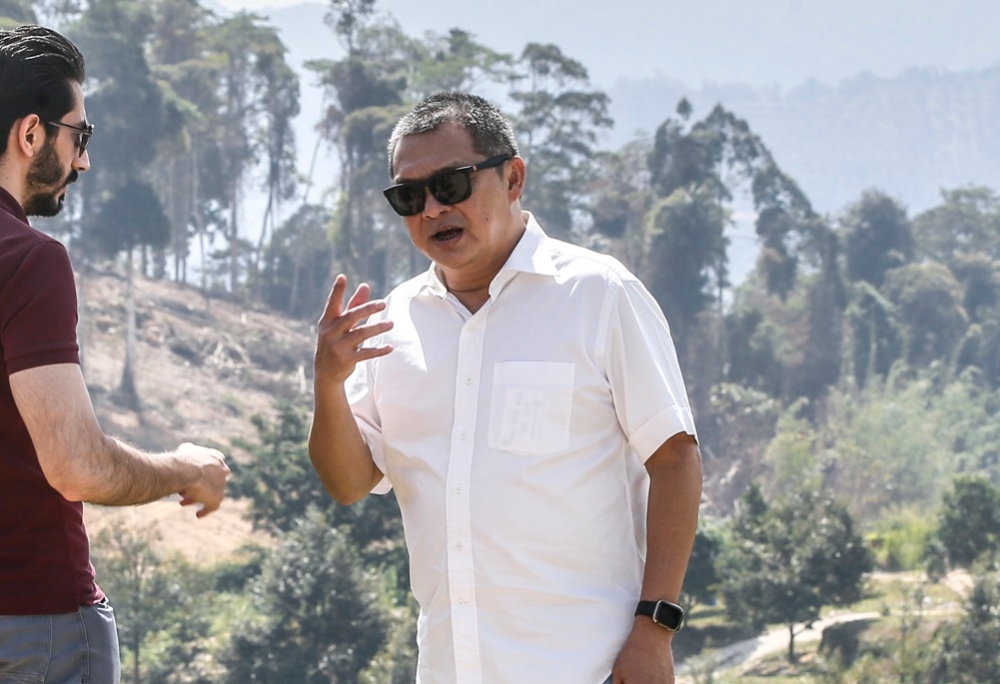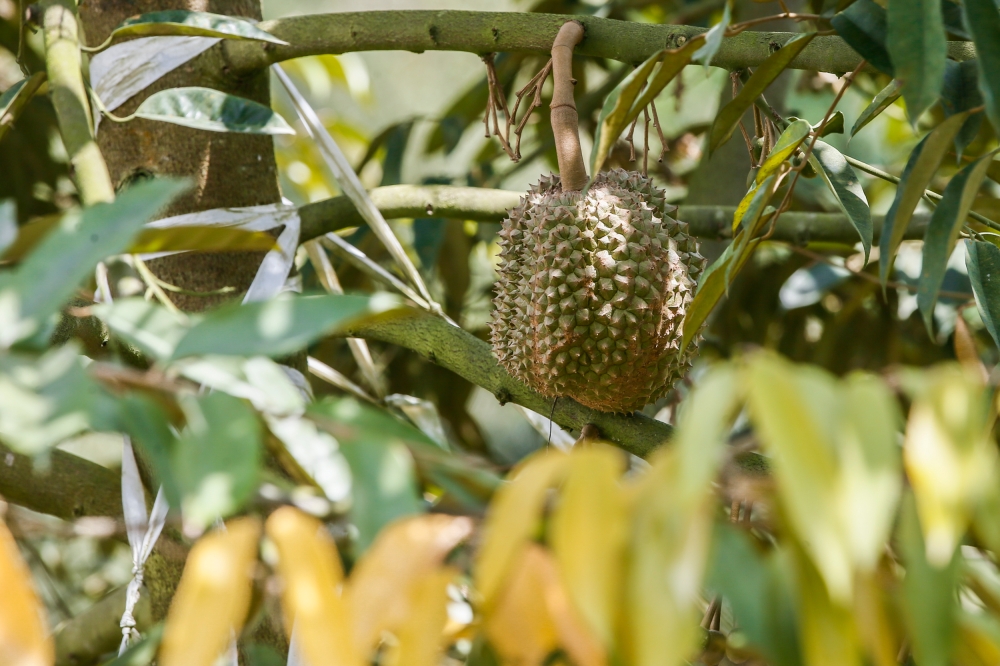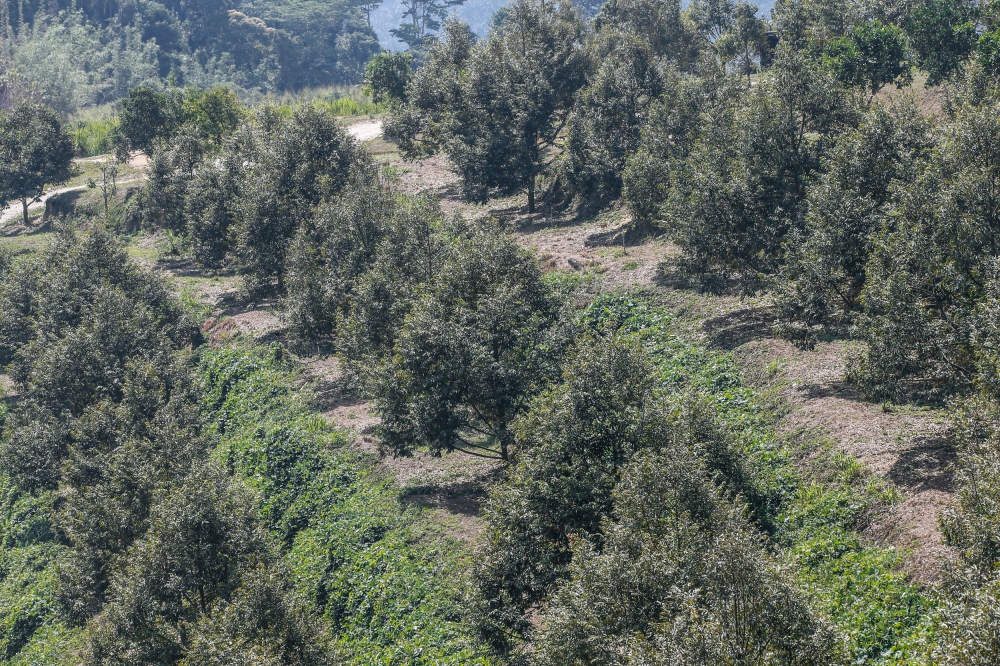KUALA LUMPUR, June 14 — It has been three years since a thorny dispute broke out between a group of purportedly unlicensed durian farmers in Raub and the Pahang state government.
The bitter clash began in July 2020 when the farmers reportedly received a notice from the district land office ordering them to vacate their farms within 30 days or risk being evicted.
At the centre of the dispute, a new company name – Royal Pahang Durian Group (RPDG) – popped up and made several headlines after being accused of initiating an exploitative agreement with Musang King farmers to legitimise those on state-owned encroached land through a scheme.
Earlier in 2017, the state government awarded the company the lease and rights to use 1,000 acres of land in Tras, Raub for 30+30 years.
The company was also given a mandate by the state government to implement a legalisation scheme with the farmers through its subsidiary Royal Pahang Durian Resources PKPP Sdn Bhd (RPDR-PKPP) which is a joint venture with the state agriculture agency Perbadanan Kemajuan Pertanian Negeri Pahang (PKPP).
Three years on, RPDG has unveiled its “holistic business structure blueprint” that aims to tap into China’s durian market worth billions of ringgit.
The company yesterday took several members of the media on an expedition inside its mega farm for the first time to clear the air about the controversies surrounding the scheme.
An aerial view of the 1,000-acre durian farm by Royal Pahang Durian Group in Raub.
A 30-minute drive from Raub town took us to a bumpy hilltop and at the top was a magnificent panoramic view of over 26,000 durian trees systematically grown in rows on slopes.
RPDG deputy chairman Datuk Albert Chang Si Fock said he had been keeping silent about the controversy for three years because he was waiting for the farm to be up and running to show the outcome before he could talk about the long-term plans.
“We spent so much time and research to make this smart farm a model for the whole district of Raub.
“It’s because we have the most supreme type of durian, hence we have to make our fruit distinct and position ourselves differently for higher value,” said Chang referring to the Musang King cultivar, regarded as the most sought-after type of the thorny fruit.
The billion-dollar market
Presenting statistics from durian producers in the region, Chang said Malaysia holds 10.4 per cent of the global market share for durians, behind Vietnam (16.7 per cent), Thailand (31.2 per cent) and Indonesia (35.2 per cent).
Citing recent reports, Chang said Thailand holds a 90-per-cent market share for durian exports to China while Malaysia, Vietnam and the Philippines only capture 10 per cent of the market collectively.
“Despite being among the low producers of durians in terms of quantity, it all comes down to how we position ourselves in China.
“We must be different from others because our fruit is unique and has value.”

Royal Pahang Durian Group deputy chairman Datuk Albert Chang Si Fock takes the media on a tour inside the 1,000-acre durian farm in Raub.
Referring to the China Insights Consultancy’s industry report, Chang said durians have become China’s fastest-growing fruit with its retail value increasing from 21 billion yuan (RM13.57 billion) to 52.5 billion yuan (RM33.92 billion) in 2021.
“It is also projected to reach 130.6 billion yuan (RM84.39 billion in 2026).
“Therefore, price stability and quality control are of utmost importance to stay in the competition.”
Chang said Thailand is already exporting their Thai Musang King equivalent to China and that Hainan Island is also cultivating its own Musang King variant with an estimated 2,450 tonnes hitting the market this month.
While China allows Thailand, Vietnam and Philippine to export fresh durians to the republic, Malaysia’s export protocol approval which was issued in 2019 only allows exporters to send frozen fruits.
To do so, the durians should be frozen with liquid nitrogen at -100°C and undergo cold-chain transport and storage from end-to-end at -18°C.
Therefore, Chang said RPDG is in the midst of developing a processing factory in partnership with PKPP to facilitate compliance with the export requirements to China.
Upon completion by the end of this year, the facility will be capable of freezing up to 120 tons of durians daily with a storage capacity of 7,000 tons.
“Durian is a perishable fruit and can only last two days in fresh form.
“But when we deep freeze it, we can store it for up to 12 months which would give us an advantage over others who export the fruit in fresh form.”

The young Musang King trees have started fruiting.
The legalisation scheme
Citing state data, Chang said there are reportedly about 11,000 acres of undocumented durian farms in Raub operated by approximately 1,000 farmers.
The legalisation scheme offers undocumented farmers to obtain legal status from RPDR-PKPP but in turn, the farmers have to sell all the fruits to RPDG’s trading subsidiary at a fixed agreed price that can only be reviewed every two years based on a stipulated price range for the first 10 years.
The scheme offers farmers RM33/kg for Grade A Musang King and RM42/kg for the same fruit in excess of 2,000kg per acre.
Chang said the price was set at a higher market average based on data from the Federal Agriculture Marketing Authority which estimated the average price of Musang King at RM27/kg between 2019 and 2021.
According to him, the legalisation scheme aims to achieve price stability, certainty of supplies and improve competitiveness for the group’s intended business model in China.
In February, RPDG entered a joint venture with China’s Parkview Group to formulate an end-to-end business-to-consumer-focused model with an aim to penetrate the durian market in the republic.
It was understood that some of the farmers are still pursuing their legal challenge against the state’s decision to evict them.
Some of the farmers told The Star in February that they are dissatisfied with the terms to sell the fruits exclusively to the company.
Should the legalisation scheme materialises as planned, RPDG will be able to consolidate about 40,000 metric tonnes of Raub durians annually from 2025 after the farm fully matures.

The plantation cultivates a variety of durian types including Musang King, Blackthorn, D24, DI0I and Tekka.
Is a monopoly in the making?
Chang dismissed claims that the scheme may lead to market monopolisation and said they only help to consolidate supply so that they can have a position to negotiate and enter a market as big as China.
“Assuming we succeed, so many other big players in the country can emulate the same formula to penetrate the overseas market.
“There is so much room for everybody.”
Chang said durian should be looked at as a national treasure or a commodity to better understand the importance of having the right strategies to market the fruit to other countries.
“Durian is a huge business but we have not put our act together.”
Asked if the main focus of the company is to export the fruits to China Chang said they will offer up to 50 per cent of the durian fruits purchased under the initiative to be transacted to local traders-cum-exporters community in Raub.
He, however, said should the local traders choose to sell back the allocation for the export to China, RPDG would accommodate arrangements.
“We want to make our fruit so special so that one day people set a price to buy it.”
Prior to the durian farming business, Chang had vast experience in leading international projects to construct mega power plants overseas.
He was one of the founders of the Zelan Group of Companies.
Source link



